
Copyright © 2024 · OurPublicRecords.org · All Rights Reserved

Free Virginia Unclaimed Money Lookup
We receive referral fees from partners (advertising disclosure)
The information we provide you is free of charge and a result of extensive research by our home warranty experts. We use affiliate links on our site that provide us with referral commissions. While this fact may not influence the information we provide, it may affect the positioning of this information.
The information we provide you is free of charge and a result of extensive research by our home warranty experts. We use affiliate links on our site that provide us with referral commissions. While this fact may not influence the information we provide, it may affect the positioning of this information.

See how you can claim any unclaimed money held by Old Dominion in our ultimate guide to unclaimed money in Virginia.
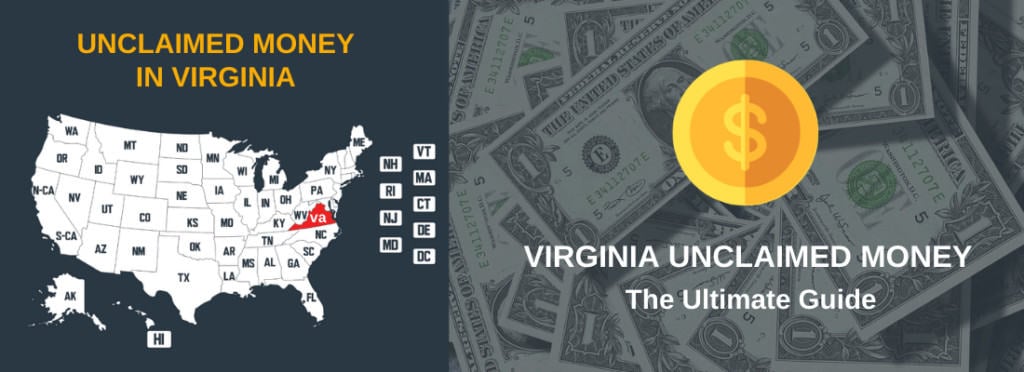
The Virginia Treasury created the Unclaimed Property Program as a way to help anyone who lost or abandoned their money get it back. Though you might think of money in terms of the cash that you can hold, it can include any type of asset that is worth money. You have the chance to search for your funds through the VA Missing Money website. Not only does this site update its holdings regularly, but it tells you about some of the scams that others used to target Virginia residents.
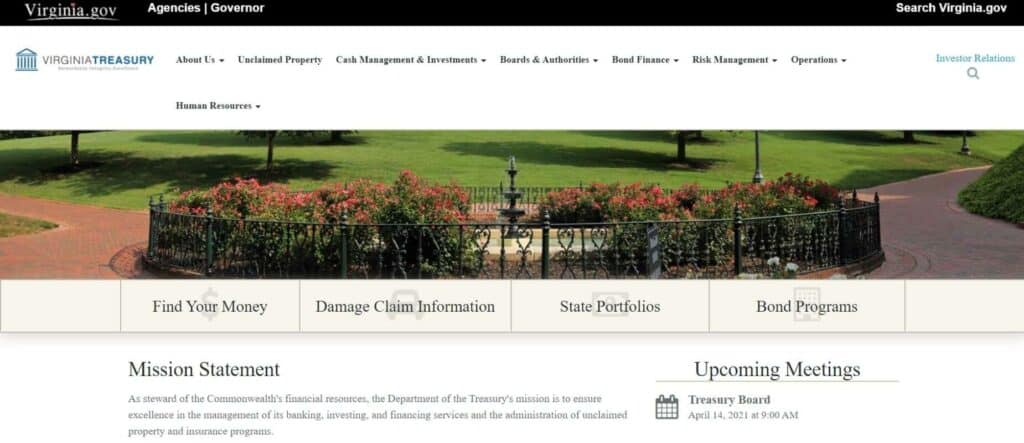
Many people never take the time to search the VA Missing Money database because they think that the treasury will contact them if their name appears. Others assume that they won’t find much and that the asset isn’t worth the time that it takes to file a claim. We want to show you that it takes mere minutes to search for your cash or another type of asset. More than 1.1 million users found their money online and claimed it. You can join their ranks when you use our ultimate guide to unclaimed money in Virginia.
Before a property becomes abandoned in Old Dominion, it must have both a listed owner and holder. As the owner, you are responsible for following any of the laws that the holder has. The holder is the organization that oversees your property such as a mortgage lender or bank. Virginia law states that an asset becomes abandoned after one to 15 years. It depends on the type of property. While unclaimed paychecks become dormant after only one year, a money order or bank account may remain with the holder for much longer.
Insurance proceeds are just one example of the unclaimed property held by the Virginia Treasury. When you buy a life insurance policy, the insurer asks you to name at least one beneficiary. This person has the legal right to claim the money from the policy. If you are the beneficiary of a policy bought by another person, you can get the money from the policy. This gives you money that you ever expected to have, which you can use to pay their funeral bills and any other expenses that you might have. Any insurance check that bears your name in Virginia should appear in the database.

Uncashed checks are another example. Did you ever open a credit card and sent more than you owed? The credit card company must return the overpayment to you. An uncashed check might come from a former employer, too. This often occurs when you change jobs or quit suddenly without updating your contact information. Your employer has only one year to get your last paycheck to you before the treasury will take it over. As long as a check lists you as the person who deserves the money, the funds that it held still belong to you.
Bank accounts are another thing to look for in the VA Missing Money database. Did you ever shade a bank account with another person such as a parent or former spouse? Unless you took your name off of the account, you will still appear as an owner.
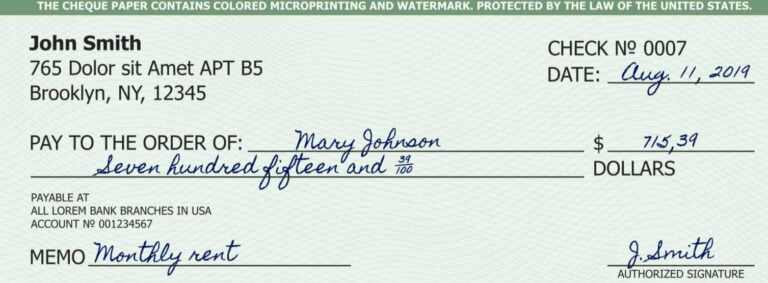
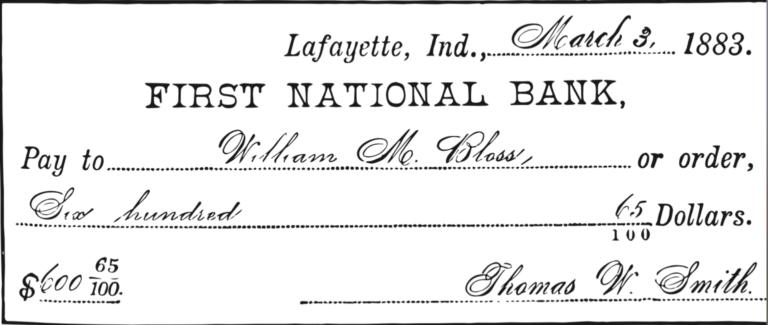
Virginia asks banks to hand over both savings and checking accounts that owners abandon. Even if you only left a few dollars in the account, the money is still available for you as well as any interest that the account earned.
Don’t forget about the tangible property that Virginia holds, too. This includes all types of stocks and bonds along with safe deposit boxes. As a way to save space, Virginia will only hold tangible property for a short period before it holds an auction. Any money raised from the sale of your property will go into a unique account that allows you to claim the money later. We’ll go over how this process works a little later after we look at how you can find unclaimed money in Virginia.
Virginia is one of the most populous states in the nation, which explains why it holds so much money for others. Recent reports found that Old Dominion is responsible for more than $1 billion in assets that belong to lost and missing owners. This equates to more than most states hold as all 50 states have $42 billion in unclaimed assets. The amount of money that Virginia holds changes often as it processes claims and releases funds. It also grows as more holders report abandoned assets to the Virginia Treasury’s Unclaimed Property Division.
The Virginia Treasury’s Unclaimed Property Program makes it easy for anyone who lives or lived in Old Dominion to find their lost property. We’ll go over the steps that you can use before you check out the site.
Step 1: Visit the VA Missing Money website, which is part of the Virginia Treasury’s Unclaimed Property Program.

Step 2: Choose which type of property search best describes your situation. To search for property that you own, click on the blue “Search for Yourself” option.
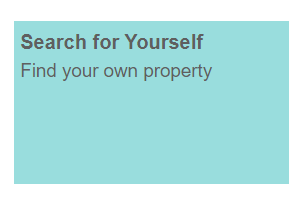
Step 3: Add your name to the boxes shown. Virginia encourages you to add your middle name as the system will look for all assets owned by anyone who has any facets of your name. Click on the green “Go” button once you enter your name.
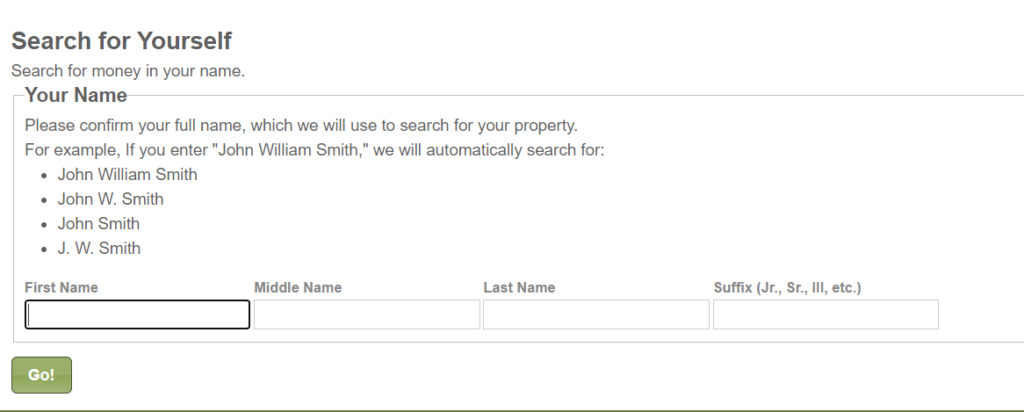
Step 4: Enter your social security number if you want to help the state narrow down your results. You can enter your full social security number or just a portion of it. Virginia also allows you to skip this step.

Step 5: Click on the boxes next to certain states to show that you once lived there. Virginia will bring up this box if it found that you owned property in a different state. You may not see this box. The state also shows you what you can do to claim those assets.

Step 6: Look over the business list to select which ones you had a relationship with in the past. This allows Virginia to find the specific assets that you can claim instead of showing all the assets owned by people with similar names.

Step 7: Check the listed assets to see a rough idea of how much money is available in each one. Virginia may let you know that it found assets in your name held by another government department along with what you can do to find that money.

Virginia’s online asset finder both helps you find claims and file the paperwork to get them back. Once you complete the above steps, click on the button to register for a new account. If you already have an account with the site, you can log in and complete your claim.

You need to pick a password that contains both a special character and an uppercase letter along with a lowercase letter and number. Virginia also asks that you answer a question that it will ask you if you lose your password. The site requires your email address and a username.
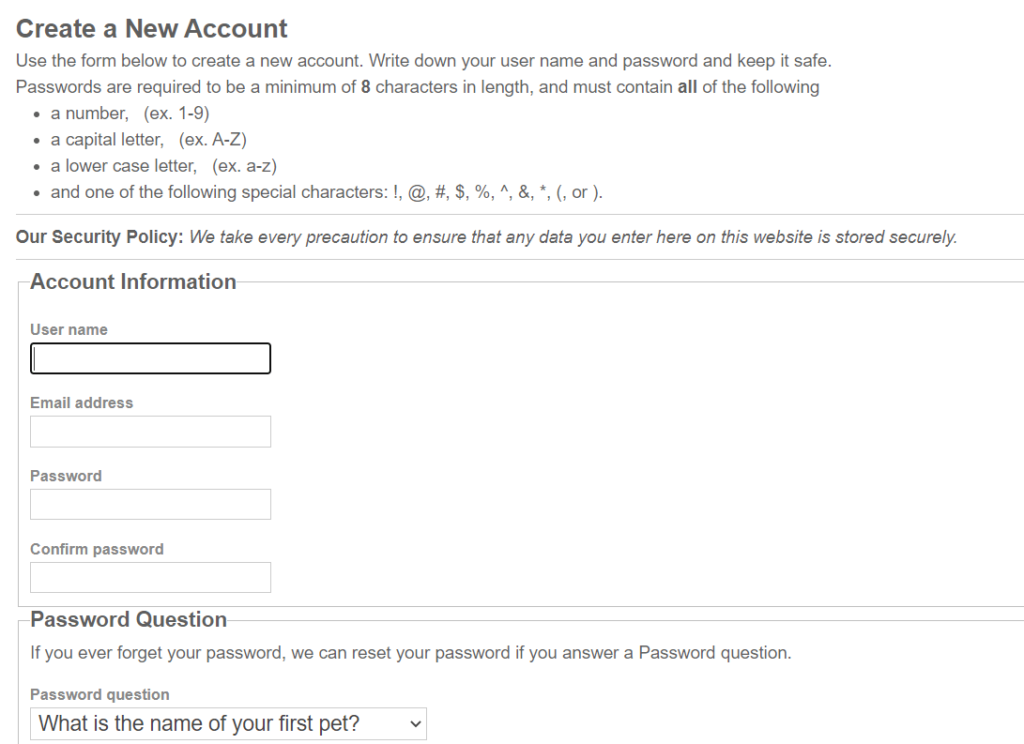
You then need to provide the state with your contact information, including your mailing address and phone number. If Virginia needs to contact you for any reason about your claim, it will use the address/phone number you used.
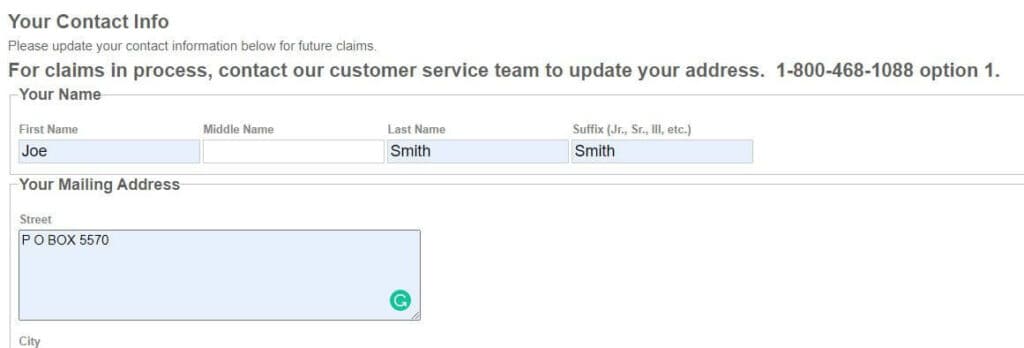
The site then asks how you want to complete your claim form. You can request a copy sent to your email or home address or tell the website that you will return later. If you choose the download option, the site will provide you with an instant copy of your form that you can print or save.
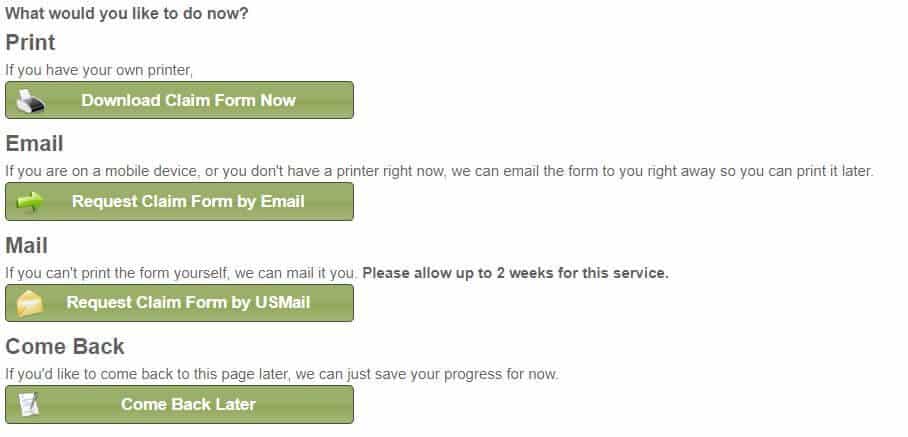
To finish your claim, print the form and sign on the affidavit line. You also need to date the form and add your email address and phone number. Send the form to the Unclaimed Property Division in Richmond, which will process it and release your funds.
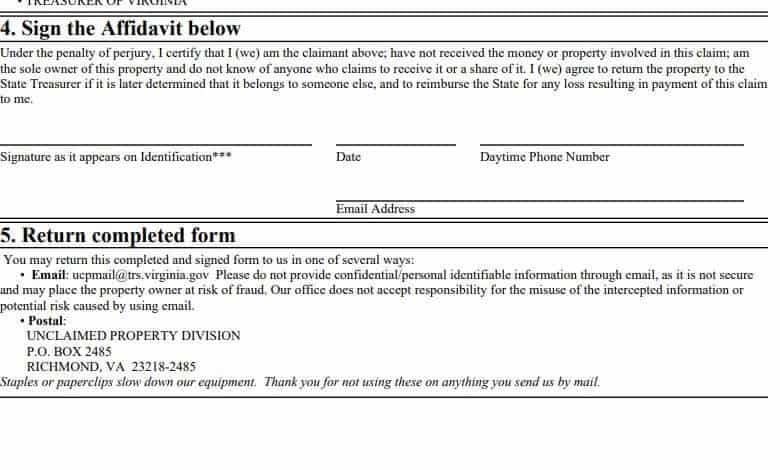
Yes, there are many websites that can help you find abandoned assets outside of Old Dominion. We recommend that you start in the states where you once lived. If the state doesn’t have an online system, check with Missing Money, which partnered with states in the south and other regions. Though this site will occasionally let you file your claim and send it to the state online, it may simply send your information to the state. The state will then contact you about what you need to do next.
We also encourage you to visit government websites that hold abandoned property such as the Internal Revenue Service (IRS). Did you give up on ever getting back a refund that your old tax return showed you earned? The IRS lets you search to see what happened to your check and if you can still claim it. In many cases, you can enter your routing and account numbers to let the IRS deposit your check into that account. This also ensures that you never miss out on a future refund check.
Other sites that help those looking for unclaimed money include:
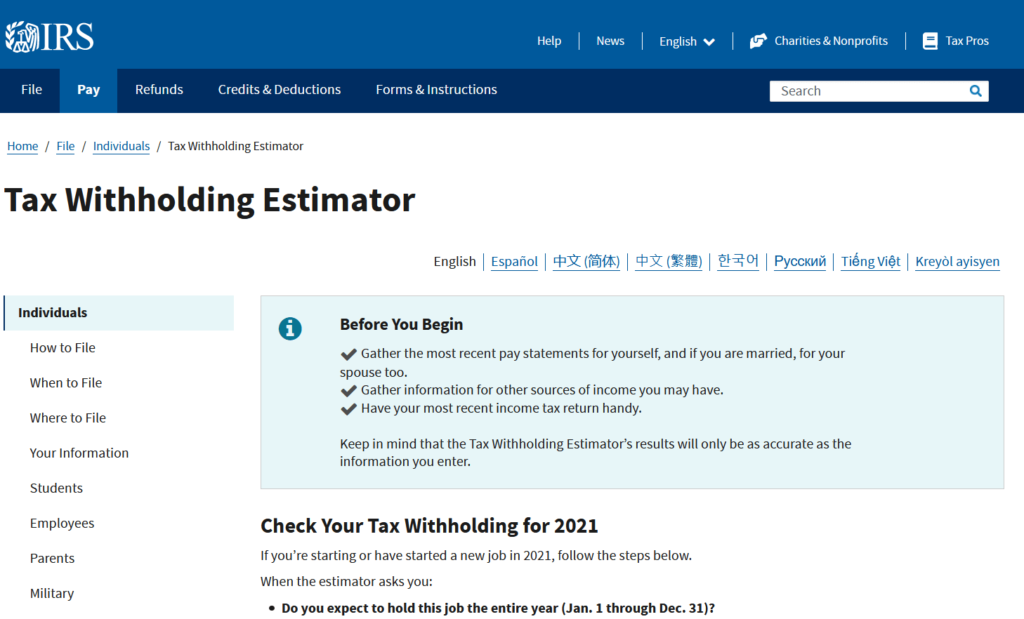
The Code of Virginia contains the Virginia Disposition of Unclaimed Property Act, which defines all the terms that you need to know. If you scroll down, you’ll see how the state determines if a property is abandoned. This is when the owner does not make any attempt to contact the holder and retain the property. You can also use this site to see if the holder has the legal right to sell or keep any of your assets. This commonly occurs when the holder incurs cost due to holding your property.
Yes, Virginia does let you claim a deceased’s property online. You need to visit the VA Missing Money website and click on the “Search for the Deceased.” The site will then walk you through the same steps as if you searched for your property. If the owner was a Virginia resident, you can claim as a personal representative or if the court names you the executor or administrator. You need copies of both the deceased’s death certificate and obituary along with their social security number. The state asks for proof of your identity and relationship with the owner. Virginia will only release funds to the deceased’s estate unless you can prove that you do not need to probate the estate or the court already closed the case.
It takes an average of six to eight weeks for Virginia to process claims. Though Old Dominion processes claims as they arrive, there is no guarantee that you will get your money within six weeks. Once a representative views your claim, they will determine if the division needs anything else from you. This may include a copy of your driver’s license or another ID issued by the government along with your social security number. The longer that it takes for you to supply those documents, the more time it will take to process your claim. You can visit the VA Missing Money website and log in with your username and password to see where you are in the process.
Tangible property such as safe deposit boxes and stocks often go up for sale during the Virginia unclaimed property auction. If the state cannot locate the property owner or anyone else with a legal claim to it, the treasury allows the items to go into the auction catalog. You can visit eBid Local, which is an auction company in Richmond. This allows you to view all upcoming auctions and register an account to bid on items. You can also see what items sold for in previous auctions. Virginia will keep the money earned in the name of the owner and allow them to claim it at a later date. If you find anything that you believe belongs to you or someone you know, you can contact the VA Treasury’s Unclaimed Property Division and request that it takes those items off the auction block. The state will not sell stock certificates, paperwork or military medals in its auctions.
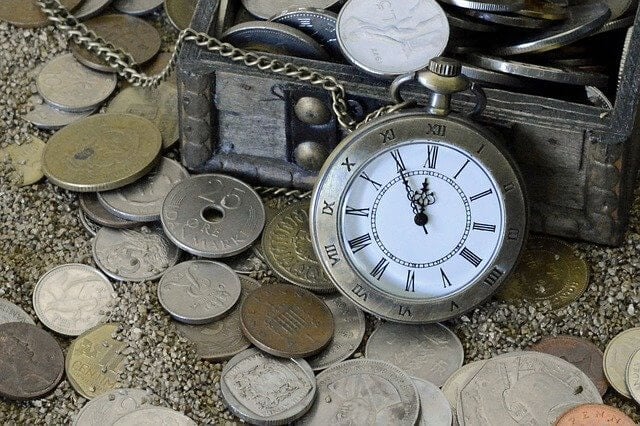
As most of the claim process takes place online, you can file even if you moved from Virginia. Though you may need to fax some of your documents, you can start the process from anywhere in the world as long as you have an address where the state can send your form and money. If you have a different address than the one on your asset, Virginia asks for proof that you once lived there. You can submit a copy of your credit report with the address shown or use an old utility bill or tax record. Claim representatives can help you if you do not have proof of your old address. You can get in touch with one over the phone.
Virginia requires that all holders make more than one attempt to find the owner of an unclaimed asset. Holders must send a certified letter to the address they have on file at least 60 days before alerting the treasury. This gives the owner or their heirs time to contact the holder and get the property back before it goes to the VA Unclaimed Property Division. The division will then accept any asset with a minimum value of $100 and list it in the VA Missing Money system. Virginia will also list all recently added property in local newspapers across the state as a way to inform the owners and anyone who knows them. In some cases, Virginia will also send letters to owners if they can find them. This usually only happens in situations where the property is worth quite a bit.
When someone you care about passes away, you may get a letter from an organization that claims it can find their property and get it to you. As they often look at obituary notices, some refer to the organizations as heir finders. You do not need to sign a contract with one of them or allow them to search for you. Not only does Virginia offer an online system that helps you find your money, but it allows you to claim that cash for free. While Old Dominion money finders will file on your behalf, they’ll also take some of your money.

Though Old Dominion will hold most assets forever, it will sell others at auction, which is why it’s important that you take steps to keep the state from getting your property. You should keep track of all of your assets and accounts, especially those that you use online. Make sure that you record account numbers along with your log-in details and keep that information in a safe location. You’ll want to reach out to your holders if you need to change your name as well as when you move.
While Virginia may not send you a letter that says you have unclaimed property held by the state, you can easily find any assets that you forgot about or lost. The VA Missing Money website has options for property owners as well as those looking for assets that belong to a business or deceased owner. You can use the online system to file claims for all of your assets and see what Old Dominion requires of you. Our ultimate guide to unclaimed money in Virginia makes it easy to find everything that you lost.
Disclaimer: OurPublicRecords mission is to give people easy and affordable access to public record information, but OurPublicRecords does not provide private investigator services or consumer reports, and is not a consumer reporting agency per the Fair Credit Reporting Act. You may not use our site or service or the information provided to make decisions about employment, admission, consumer credit, insurance, tenant screening, or any other purpose that would require FCRA compliance.

Copyright © 2024 · OurPublicRecords.org · All Rights Reserved